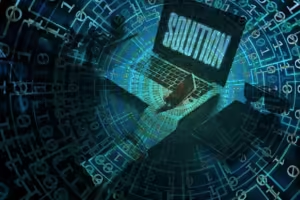In today’s digital age, personal data is one of the most valuable assets you own. From social networking profiles to financial records, a lot of personal information gets stored by digital platforms, and hence, this makes them very attractive for any hacker. Protecting your personal data is crucial in safeguarding your identity, privacy, and financial well-being. In this article, we’re going to look at some of the different techniques you can apply to keep your personal data out of the hands of hackers.
1. Use Unique, Strong Passwords for Every Account
Probably one of the most direct but effective measures you can get in protecting yourself is good, strong, and unique passwords which help you safeguard all your accounts. Hackers often use automated tools to crack weak passwords, so it’s important to create complex combinations of letters, numbers, and symbols.
Avoid using easily guessable information like birthdays, names, or common words. A password manager can be helpful in creating and storing such complicated passwords so that you wouldn’t have to memorize them all.
2. Enable MFA
Multi-factor authentication (MFA) adds an extra layer of security beyond your password. With MFA enabled, if a hacker somehow gets hold of your password, they will also need to verify with a second form of identification, be it a fingerprint, or a code sent to your phone, or a security token, for them to get into your account.
Most major services have MFA, including Google, Yahoo Mail, and most banking apps. It greatly reduces the risk of unauthorized access, making it really difficult for a hacker to access your accounts.
3. Be Careful with Public Wi-Fi Networks
Public Wi-Fi is convenient, but it’s also a haven for hackers. Many of these networks are unsecured, thus making it very easy for cybercriminals to get the data you send and receive. If you need to access sensitive information on public Wi-Fi, make sure to use a Virtual Private Network-a VPN- that encrypts your internet traffic.
Adding an extra layer with a VPN masks your IP address and encrypts the data, making it much more difficult for hackers to intercept communications. Never do online banking or shopping from a public network unless you are using a VPN for added protection.
4. Avoiding Phishing Scams
Phishing tops the list of popular hacker techniques for stealing personal data. During a phishing attack, a hacker sends an email or message designed to look as though it has come from a bank or another well-known online service, deceiving you so you can give out sensitive information or even links that pose a threat.
The way to protect oneself from phishing scams is to be wary of unsolicited emails, most especially those that just ask for personal information. Be very cautious with the sender’s address, and do not click on links or download attachments unless you’re certain of the source. Reputable organizations rarely request personal information via email.
5. Keep Your Software and Devices Up-to-Date
Software updates often include patches for security vulnerabilities that might be exploited by hackers. Regularly updating operating systems, browsers, apps, and antivirus software keeps devices protected from many cyber threats.
Most devices have options for automatic updates; these should be enabled to limit the chances of you forgetting and thereby leaving the system open to malware or another type of attack.
6. Data Masking: Masking of Personal Information
Data masking is one of the most promising techniques that might be employed in protecting sensitive data against unauthorized access. In data masking, the actual data is replaced by fictitious data with similar structural elements, and thus sensitive details related to your social security number, credit card details, and other personal information remain well hidden from unwanted eyes.
As an example, a hacker who accesses a database with information may see masked data like “XXXX-XXXX-XXXX-1234” and not your actual credit card number. This is one of many ways organizations secure customer data, but individuals can also benefit from using services or platforms that use data masking when sharing or storing sensitive information.
Another variant of this technique is dynamic data masking, which can be used in real-time to mask personal information from public view when interacting with websites or services. This is particularly useful when sensitive data is shared across multiple platforms for testing, processing, or analytics without exposing the actual details.
7. Periodically Check Your Financial and Personal Accounts
Essentially, vigilance is the most important element in protecting personal information. Periodically go over your bank statement, credit reports, and online accounts to see if there have been any suspicious activities or unauthorized transactions on these. The faster you can identify suspicious transactions, the faster you can set up blocks to prevent further damage.
If you find some unfamiliar charges or, respectively, account logins, take immediate action with the financial institution or the respective service provider. Many services offer real-time alerts of logins from unfamiliar devices or locations and add an additional layer of protection.
8. Limit the Personal Information You Share Online
Social media and other online platforms often encourage users to share a wealth of personal information. However, over-sharing may make you vulnerable, especially when hackers gather enough information to put together an identity for fraudulent purposes.
Avoid making your home address, phone number, and other personal information public in your social media accounts. Be cautious with who you accept friend requests or connections from, and consider adjusting your privacy settings to limit the information visible to strangers.
9. Keep Regular Backups of Your Files
The reason behind backing up your data is that, if some form of a cyber attack or hardware failure happens, you will not lose crucial information. It is good practice to back up important files to an external hard drive or cloud storage on a regular basis.
Ransomware, a type of malware that locks you out of your own data, often forces victims to pay a ransom to regain access. However, with secure backups in place, you can restore your data without giving in to cybercriminals’ demands.
Conclusion
Keeping the hackers out of your personal information requires a combination of responsible security practices and awareness of common threats. By using techniques like strong passwords and multi-factor authentication, and developing cyber-related frauds awareness, you can greatly reduce your risk of falling victim to hackers. As cybercriminals evolve their tactics, it’s essential to stay vigilant and proactive in safeguarding your most valuable asset—your personal data.






Be First to Comment